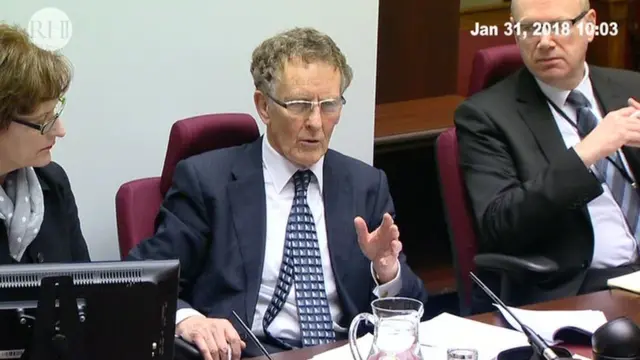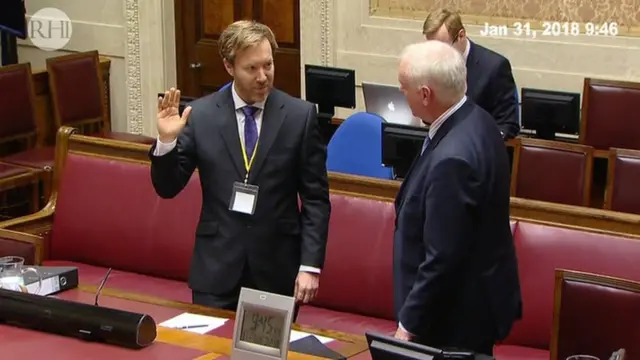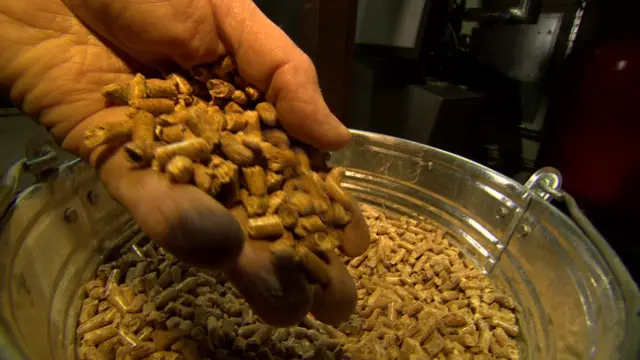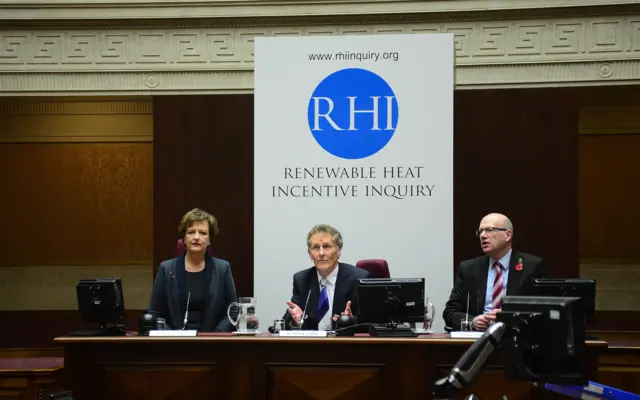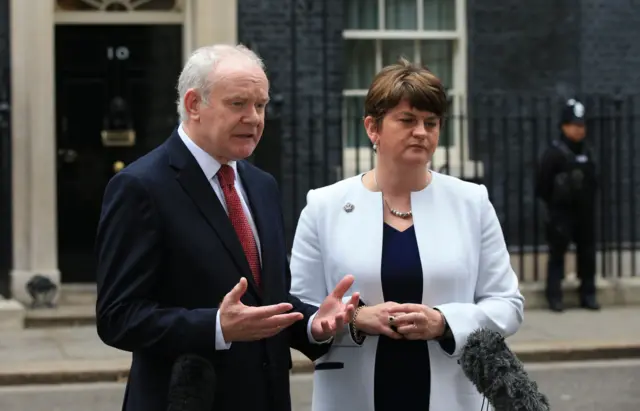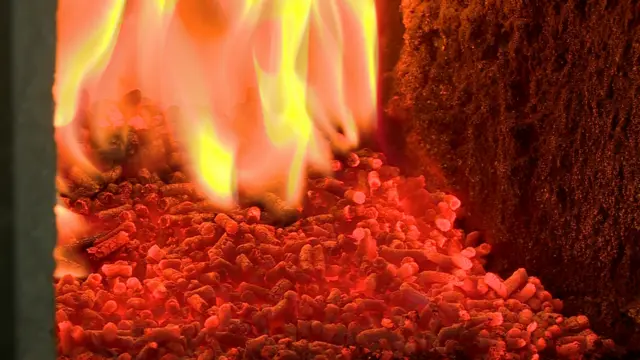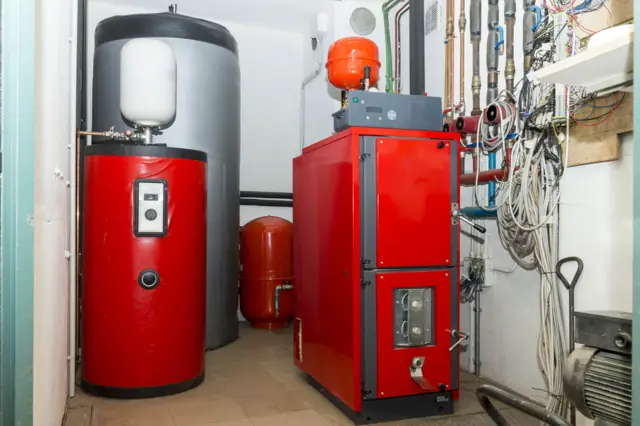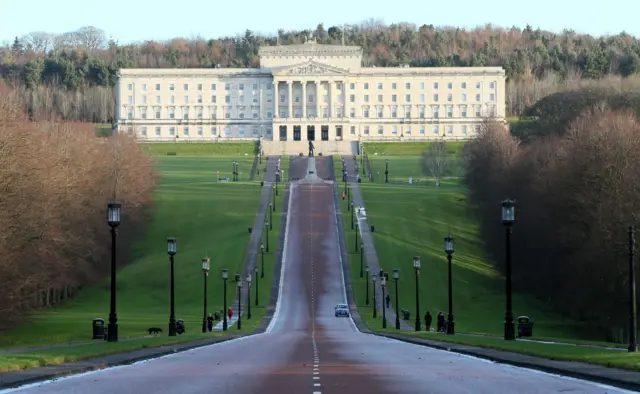'Three out of four risks aren't bad'published at 10:33 GMT 31 January 2018
When considering whether to take on the administration of the RHI scheme, Ofgem weighed up the potential risks of doing so, and four are listed in an internal document from the time.
Among them was that timescale and cost would be affected if Stormont's Department for Enterprise, Trade and Investment (DETI) "delays making the final policy decisions or makes significant changes", which ultimately happened.
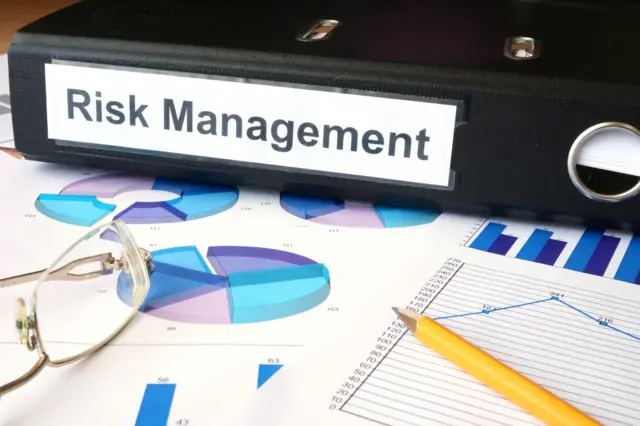 Image source, Getty Images
Image source, Getty ImagesAnother was that there may be a "failure to agree the terms that Ofgem was proposing for the work, and there did turn out to be conflict between DETI and the administrator over the costs.
A third risk was if DETI's scheme was to include extra renewable heat technologies in what could be subsidised, which indeed it did.
That prompts an observation from Sir Patrick: "Three out of four aren't bad - three out of four concerns seems to have been reasonably prescient."
